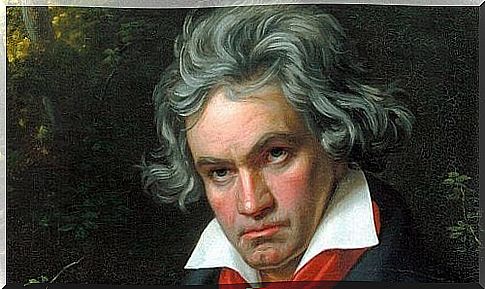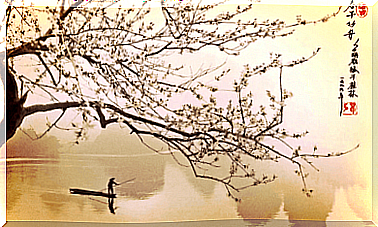Verdi: Biography Of A Sacred Monster
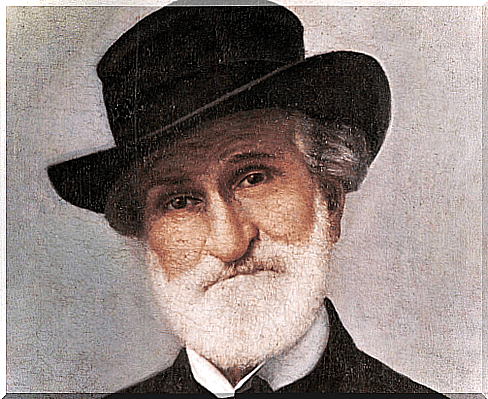
The famous musician and composer Giuseppe Verdi had extraordinary talent. Beyond his work in the field of music, he had many gifts and lived his life with probity, generosity and determination. Its artistic and moral heritage now has an indisputable place in universal history.
Parma, Verdi’s homeland, was a duchy that was successively awarded to Napoleon, the Habsburgs and the Bourbons until 1860, when it began to be part of the new Kingdom of Italy.
In the midst of the situation of political instability in Italy, Verdi, armed with his music, succeeded in contributing to the unification of the country. Parts of his operas have served and still serve today to exalt the nationalist character of the Italian people.
Verdi did not compose with the privileged groups of the society of the time in mind: he thought of the working class. His compositions were based on the passions of humanity, extreme feelings like love, hate, jealousy and fear.
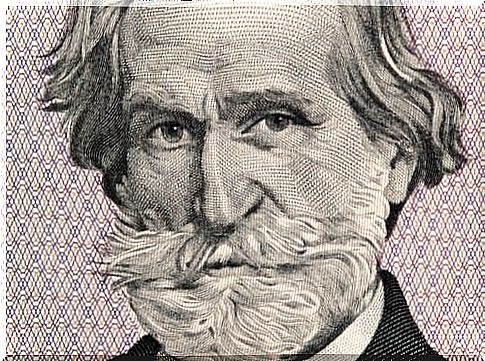
The first years
Giuseppe Fortunino Francesco Verdi was born on October 10, 1813 in Roncole, near Parma, Italy. He was part of a modest family. His father, Carlo Giuseppe Verdi, was an innkeeper. Her mother, Luisa Utinni, was a weaver. Little Verdi therefore grew up in a rough and rural environment.
His father had noticed his son’s fascination with music. So he gave her an old spruce tree when he was 8 years old. This instrument was specifically restored for him and Giuseppe spent hours practicing. He was a gifted child. His immense talent was discovered by the trader Antonio Barezzi who quickly became his protector.
At only 12 years old, the young Verdi moved to Busseto to live with Barezzi. The trader then took charge of the training of the young man and made an effort to give him the best possible musical education. It was during this period that he got to know his teacher Ferdinando Provesi.
Giuseppe Verdi: the desolation of his youth
When he turned 18, and thanks to the help of his benefactor, Giuseppe Verdi once again changed his residence. His new destination was none other than Milan. Verdi was dying to take the entrance exam to the Conservatory in that city. However, the prestigious school did not admit him because he was too old to enter.
Ironically, today the Milan Conservatory, which did not admit him in his youth, bears the name of Verdi. This happened after his death, against the will of the famous musician.
In 1836, at the age of 23, Verdi married his benefactor’s daughter, Margherita Barezzi. They had two children. However, they had to face the death of their two babies at a very early age when they were barely one year old.
By this time, Verdi was the head of the Busseto Philharmonic Society and was giving private lessons, tasks he performed in addition to his work for his first opera, Oberto.
Difficult beginnings with his operas
In 1939, his first work had not yet been performed. The couple therefore decided to return to Milan to manage the staging of this opera under the direction of La Scala. Oberto was then relatively successful and was played 14 times. After that, Verdi signed a contract at La Scala to perform three new works.
These years have been difficult for the great master. On June 18, 1840, Margherita died of encephalitis; she was only 26 years old. Despite his grief and desolation, Verdi was forced to honor his contract.
It was in these circumstances that he wrote his second work, Un Giorno di Regno, a comic opera. The work was performed for the first time on September 5, 1840 and was a complete failure. Verdi then considered giving up his career.
The rebirth of a broken heart
Luckily, Verdi came to his senses and returned to his compositions. While his country was politically divided and oppressed, Nabucco managed to rekindle the flame of composition in Verdi’s heart.
The work was performed at La Scala in 1842. Its triumph was phenomenal. The working class immediately identified with the conflict recreated in the drama.
Thanks to Nabucco, Verdi, whom Milanese society had until then hated, was consecrated as a composer and became the icon of the Italian struggle for the unification of the country. The people have appropriated the “va, pensiero ”, broadcast by the whole nation as a song of resistance, “the hymn of the risorgimento ”.
The first masterpieces and the peak of his career
His first masterpiece, Rigoletto, was performed in 1851. Two years later, Il Trovatore and La Traviata followed this immense success. After his consecration as a composer, Verdi focused on his musical preferences. His works, from there, preferred to follow a dramatic accuracy rather than a musical conservatism.
We find an example of the expression of the composer’s research in his work Aida (1871), a piece which has a more careful orchestration and in which we can appreciate shorter and better integrated arias; in other words, it exhibits less segmentation between movements.
From that point on, Verdi began to withdraw from the world of composition, although he composed a few immortal works based on texts by Shakespeare: Otello and Falstaff.
Death and legacy of Giuseppe Verdi
At 84, Verdi buried his second wife, Giuseppina, who died on November 14, 1897 from bronchitis. The composer stayed in their villa, Sant’Agata. He was then working in the fields.
During a trip to Milan, Giuseppe Verdi was struck down by a stroke. He died on January 27, 1901. His death moved the country and society as a whole. The demonstrations of respect and pain over his passing were overwhelmingly massive in the city.
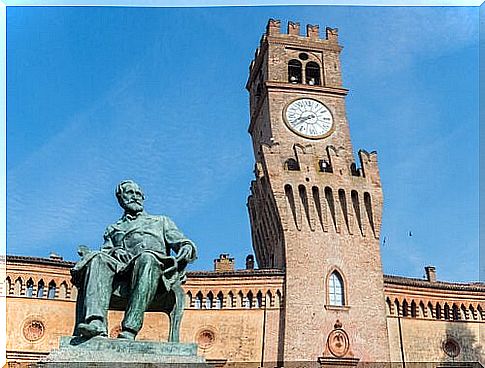
The retirement home founded by Verdi
Verdi left his fortune at the musicians’ retirement home that he himself founded to accommodate musicians in precarious situations: the Casa di riposo per musicisti. As he had requested, this is where his body and that of his wife rest.
This retirement home is still open today. It is a kind of residence for the elderly who have devoted themselves to music. A place where music emerges at every moment, where old figures of operas enjoy their retirement. Verdi felt particularly proud of it.
Verdi: a sacred monster
Few composers have been able to write operas of political philosophy, but Verdi was an exception. He has become a universal character. The general public loved his works and he was one of the few authors who could achieve real success and obtain significant economic benefits.
Critics attacked his operas for his references to rape, suicide and libertine love. However, Verdi managed to overcome the misfortunes in his life and the obstacles that critics placed on him, putting his own ideas and parameters above all else.
